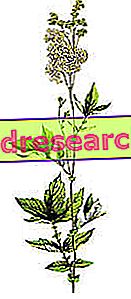Definition
Cough is a defense reflex of the organism, which occurs when a foreign substance or particle comes into contact with the mucous membranes of the respiratory tract, irritating them; in other words the cough consists in the rapid and energetic expulsion of the air from the lungs, in order to free the airways from an obstruction generated by mucus, material (eg food not directed towards the esophagus) or liquids.
Fat cough: accompanied by sputum (phlegm)
Dry cough: not accompanied by sputum
Causes
The most frequent cause of chronic cough is undoubtedly cigarette smoke which, when in contact with the mucosa of the bronchi, creates damage by inflaming it. However, cough is a symptom of many more or less serious diseases, such as aortic aneurysm, AIDS, COPD, bronchitis, embolism, cystic fibrosis, flu, laryngitis, meningitis, pleurisy, pneumonia, rhinitis, sinusitis, oesophageal and lung cancer, chickenpox. Even bacterial infections and the administration of some drugs (eg ACE inhibitors) may predispose the subject to coughing.
Symptoms
Cough is generally an involuntary phenomenon that the organism puts in place in case of possible danger: all this is the result of the excitation of specific receptors placed along the walls of the respiratory canals.
Occlusion of the glottis → contraction of the expiratory muscles → increased pressure in the respiratory tract → reopening of the glottis → violent air leakage.
Cough can be accompanied by the emission or not of sputum, breathing difficulties, sleep disturbances, chest pain, chest pains and wheezing.
Information on Cough - Drugs for Cough Care does not intend to replace the direct relationship between health professional and patient. Always consult your doctor and / or specialist before taking Cough - Cough Medication.
drugs
In general, before following a drug therapy to treat cough it is essential to go back to the triggering cause: considering that smoking is one of the most frequent causes of chronic cough, it is clear that quitting smoking is the fairest and smartest solution . When the cough instead depends on a bacterial insult, the patient is normally treated with antibiotics targeted for that given pathogen.
- In order to treat the symptom (cough), the disease that underlies it must first be treated: the recovery of the latter involves, as a consequence, the removal of the cough.
The emission of the sputum, which distinguishes the fat cough, constitutes in itself a form of natural defense: in the phlegm, in fact, bacteria and foreign particles accumulate which, when retained, can worsen the pre-existing condition. According to this, it is well understood that the administration of drugs that slow down the physiological mechanism of elimination of the mucus is not indicated, unless the consistency of the sputum is excessively dense, to the point of requiring the intake of fluidifiers or mucolytics.
The irritation of the bronchial mucosa can also be reduced by taking hot drinks (eg broth, milk) and by inhaling balsamic substances (suffumigi).
Anticholinergics - antihistamines : may cause drowsiness
- Diphenhydramine (eg. Aliserin, Difeni C FN): approximately, it is recommended to take 25 mg of drug orally every 4 hours, as needed. Do not exceed 150 mg per day.
Antitussive-expectorants : these drugs help remove the phlegm attached to the bronchial walls
- Guaifenesina (eg. Broncovanil, Vicks Tosse Fluidific): it is recommended to take 200-400 mg of substance by mouth every 4 hours, as needed. Do not take more than 2.4 grams of active per day. Guaifenesina is also available associated with cortisone derivatives, cough suppressants (eg hydrocodone: eg Dynatuss HC), formulated in the form of tablets or syrup: the dosage, always perfected by the doctor, involves taking a Guaifenesin 1200 mg tablet and 20 mg of hydrocodone orally every 12 hours, or two tablets of 575 mg of Guaifenesin and 5 mg of hydrocodone per os every 12 hours.
- Benzonatato (eg Tessalon): the dosage suggests taking 100-150 mg of drug three times a day. The dose can be increased up to a maximum of 600 mg a day.
Narcotic analgesics to quell the cough : although effective, the administration of cough suppressants can cause the secretions to stagnate, clearly risky for those patients suffering from chronic bronchitis.
- Codeine (eg. Codein, Hederix Plan): take the drug orally at a dose of 15 mg every 6 hours, as needed. Do not exceed 120 mg per day. Side effects: codeine can give constipation and addiction. Do not use in children.
- Dextromethorphan (Ex. Aricodiltosse, Bisolvon Cough, Ozopulmin, Lisomucil Sedative): the drug is usually administered in the form of syrups or tablets, at a dose of 15-60 mg, 2-3 times a day. Do not exceed 120 mg per day. At a dose of 200-300 mg a day the drug creates visual hallucinations and possible alteration of the heart rhythm: it causes less side effects than codeine.
- Butamirate or brospamine (eg Sinecod Tosse, Butiran, Butamirato MYL); it is a non-opioid sedative that performs its therapeutic activity centrally. Unlike codeine, it does not cause breath suppression. Available as oral drops, solution and syrup: take 15 mg or 40 drops every 6-8 hours (adult dose). For children, take 5-10 mg or 15-20 drops, every 6-8 hours. Consult your doctor.
- Dropropizine (eg Actiribex Cough, Tiocalmina, Elixir Terpine): indicatively, for the treatment of cough, take 5-15 mg of syrup once a day, unless further instructions from the doctor.
- Hydromorphone (eg Jurnista): take one 1 mg tablet orally, once a day (adult dose). The dosage for the treatment of children's cough must be reduced: consult your doctor for more information.
Mucolytics : indicated to dissolve the phlegm of an excessively dense consistency. These drugs crush the mucus proteins, thus making it more fluid, so as to facilitate their release.
- Acetylcysteine (eg Fluimucil, Mucofrin, Solmucol MUCOL): take 5-10 ml of 10-20% solution using a special nebulizer. Alternatively, administer 2-4 ml of a 10% solution every 1-4 hours. Consult your doctor.
- Carbocysteine (Fluifort, Mucocis, Mucolase, Mucostar, Mucotreis): the drug moderates mucus secretion, acting on the muciparous glands, reducing hypertrophy. Available in the form of syrups or capsules, to be taken at a dosage of 375 mg / day, unless otherwise prescribed by a doctor.
- Bromexina (eg Bisolvon Linctus): in the form of syrup, it is recommended to take 5-10 ml 3 times a day for adults; it is possible to increase the dose up to a maximum of 48 mg a day. For children, it is recommended to reduce the initial dose to 2.5-5 mg, three times a day.
- Erdosteine (eg Erdotin): it is an expectorant derived from homocysteine, with mucolytic and antioxidant activity. The drug is available in the form of syrups or capsules to be taken at a dose of 600 mg / day, equally distributed in two assumptions, except for further medical prescription.
In the case of bacterial over-infections in the context of cough, treatment with antibiotics is recommended; the choice of drug depends on the type of pathogen responsible for the insult and the severity of the disease. For example, Flucloxacillin (eg Flucacid, Liderclox, Nepenic) is indicated for the treatment of infections caused by staphylococci, Clarithromycin (eg Biaxin, Macladin, Klacid, Soriclar, Veclam) is particularly effective for Haemophilus influenzae infections, while drugs such as Tetracycline (eg Tetrac C, Pensulvit, Ambramycin) are indicated for chlamydial or Mycoplasma infections, even in the context of cough.



